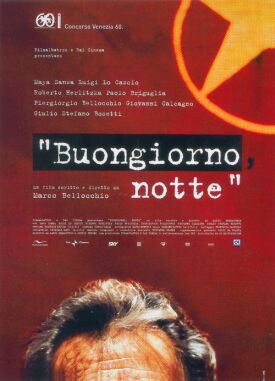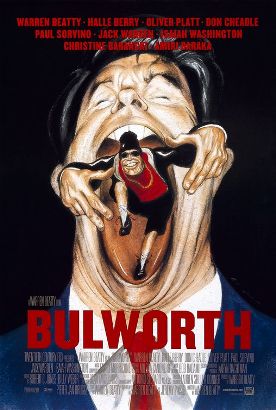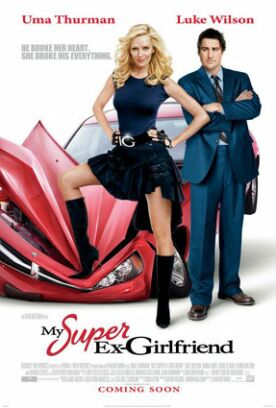Good Morning, Night
Good Morning, Night by Marco Bellocchio is a film that should be classified with this season’s two other attempts to put a human face on terrorism, Joseph Castelo’s The War Within and Hany Abu-Assad’s Paradise Now — though it is much more successful than either of those films. It is also the only one of the three in which the terrorists are not Islamic, and this is no coincidence. For the other two substantially adopt as their own the point of view of the Islamic honor culture, in which it is shameful to admit to doubts, fears or moral hesitations. The principal characters in them are thus remarkably and, to a Western audience, all but unbelievably untroubled about the horrific nature of their prospective deeds as suicide bombers. But movies are not like epic verse. They are not, that is, a suitable vehicle for the portrayal of uncomplicated heroism. We need to see some inner conflict, some of the emotion that the camera loves but that Islamic martyrs are ashamed to acknowledge.
That’s why Mr Bellochio goes back to the last time we experienced non-Islamic terrorism in the developed West, namely the 1970s, and in particular to the notorious kidnapping of the former Italian Prime Minister, Aldo Moro, by the Red Brigades in 1978. Moro was allowed to write letters to his wife and to his colleagues in the Christian Democratic party in an attempt to induce the Italian political establishment to “negotiate” with the kidnappers for the release from prison of other Red Brigades members. But they refused, and Moro’s bullet-riddled body was found in the trunk of a car two months after his kidnapping. What happened to him during the period of his captivity is still unknown, so Mr Bellocchio is free to imagine it — and a very persuasive job he does of it too.
His Red Brigade cell coalesces around Mariano (Luigi Lo Cascio), the ideologue, Primo (Giovanni Calcagno), the practical and ruthless “soldier,” and Ernesto (Pier Giorgio Bellocchio), a gentle romantic who misses his girlfriend. Most importantly, there is Chiara (Maya Sansa), a young woman who finds herself playing den mother to her fellow terrorists, or Wendy to their Peter, John and Michael. She and Ernesto pretend to be husband and wife and rent the Roman apartment where the kidnapped Moro is to be held. Outwardly, Ernesto and Chiara appear to live normal bourgeois lives, and she goes out every day to her job as librarian in an Italian government ministry. Both at work and at home we are constantly aware of her attachment to the larger Italian society. She has to be vigilant in observing it, but it is also observing her — an odd illustration, perhaps, of Chairman Mao’s dictum that the revolutionary must live among the people as a fish in the sea.
But, at least in the Western context, there were two sides to that principle, and the closer the revolutionaries are to the people the more they must be aware of the absurdity of their imaginary revolution. Once when Chiara finds that someone has graffitied the Red Brigades emblem on an elevator at work, the others grow excited because they think it a token that the revolution is now really about to begin. One of the best scenes in the film comes when Chiara’s upstairs neighbor (Roberta Spagnuolo) comes down to ask her to look after her baby at the very moment when the men are carrying the unconscious Moro into the apartment. The shot of them carrying the large crate in which they have hidden their victim takes place behind the foregrounded baby sitting peacefully in his baby-seat. Later, after Ernesto sneaks out to visit his girlfriend, the same neighbor confides in Chiara that her supposed husband is having an affair.
There is something a little magical but also very true to life about the neighbor’s knowing something we don’t expect her to know but not knowing the much bigger thing that the terrorists naturally fear she will find out. Other magical elements in the film include rapid shifts between Chiara’s dreams and her waking world, which gradually begin to merge. Also, Chiara makes friends with a young man at the office, Enzo (Paolo Briguglia) whose presence in the film may or may not be a sort of hallucination. He is the author of a screenplay with the same title as the film, Buongiorno, Notte, a copy of which for some reason never explained is among the things that the kidnappers find in Aldo Moro’s briefcase. Enzo tells the appalled and fascinated Chiara about his script, which is about Red Brigades terrorists. As he gets to know her, he reveals that he has made one of the characters in it a woman, modeled on her.
“I imagined a young girl like you joining them,” he tells her. “Like you, she is young, beautiful, but always hiding it. This girl wants to save the prisoner, but she is afraid of letting her comrades down. Going to the police would make her a traitor. . .She is suddenly revolted by the killing. She stops believing in it. She is furious at having been so blind and stupid.” Chiara is visibly upset that this fictional version of herself is feeling just what she is feeling. Later, she sees a large number of police coming into her building and, sure they have come for her, practises saying “I am a political prisoner.” But then she watches, astonished, as they pass her without a thought and arrest Enzo. It’s one of two dream-like sequences whose reality-status is deliberately left in doubt. Another amounts to an escape fantasy, in which Chiara drugs her fellow conspirators and then releases Moro, who as played by Roberto Herlitzka has the dignity and gravity of a Renaissance Italian prince, to return to his family.
Historically, of course, we know that that’s not what happened, and there is an alternative sequence in which we see the terrorists leading a blindfolded Moro out of the apartment, presumably to his grimmer historical end. But by ostensibly giving us a choice of endings, Bellocchio injects an arguably truer note of optimism. After all, it was Italian political culture which, for all its faults, survived the terrorism of the Red Brigades and the self-styled revolutionaries who as a movement went to the wall, undone partly by the public revulsion which greeted their murder of Moro. Wouldn’t it be nice to think that a similar fate awaits the Islamic terrorists of our own times? But it’s hard to find any of them, in the movies at any rate, who show any signs of feeling Chiara’s compassion for her victim.
Discover more from James Bowman
Subscribe to get the latest posts to your email.








